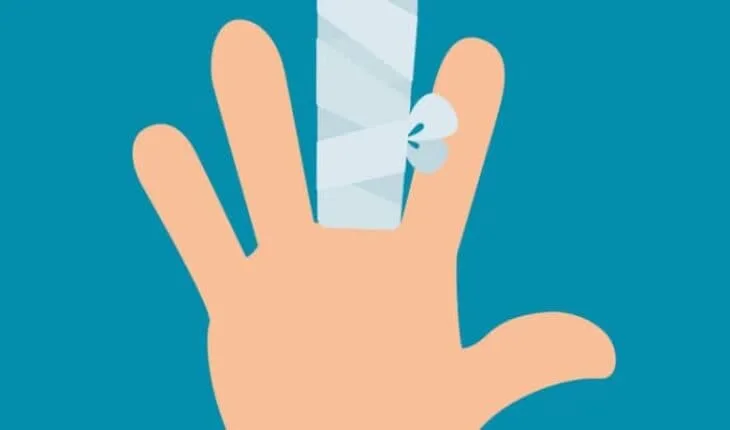What to do if someone cuts their finger off
It is surprisingly common for people to accidentally cut off part of their fingers, most often by shutting their hand in a slamming door or window or catching their fingers in a hinge or other moving part. If you know the most appropriate, immediate first aid treatment, you may be able to save the severed part and enable it to be re-attached.
If part of a finger is amputated, the priority is to look after the casualty and keep them as calm as possible. Sit them down and try your best to reassure them. Elevate their injured hand above the level of their heart and apply direct pressure to stop the bleeding. Do not worry about the amputated part until bleeding has been controlled and the casualty is calmer.
How to save the amputated finger
Pick up the amputated part, wrap it in a cloth, put this in a plastic bag and then place it on an ice pack.
Do not let the ice come directly into contact with the amputated part because it will cause ice burns. Remember you are chilling the amputated part to preserve it. Do not be tempted to wash the amputated part because there is a danger you could lose elements. It will be cleaned thoroughly in hospital.
If the finger is still partly attached, it is still likely to have a blood supply. Carefully bandage the severed part in place (not too tightly) support and elevate the hand. Transfer to hospital as quickly as possible.
If someone has just crushed and bruised their fingers, run the damaged area under cool running water for 10 minutes, then apply a wrapped ice pack, elevate the injured hand and seek medical advice.
- 7 Proven Hangover Cures and First Aid for Alcohol Poisoning - 2nd January 2026
- What is a seizure? - 13th March 2025
- Febrile Convulsions and Seizures in Children - 13th March 2025







